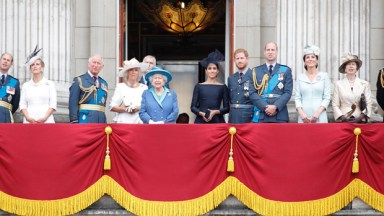
The British monarchy is one of the oldest and longest lasting institutions in the world. Surviving through both World Wars, its own domestic conflicts, and nationwide scandals, the Royal Family has maintained its status through perseverance and diplomatic decisions. But now, the fabric of the Royal Family appears to be more strained than ever in modern history.
Since taking a step back from their duties in January 2020, Prince Harry and Meghan Markle have been the subject of intense scrutiny. Tonight, Sunday, March 7, the Duke and Duchess of Sussex will sit down with Oprah Winfrey for their own tell-all interview, discussing their new life and their decision to move to the United States. During a recent preview for the interview, Meghan Markle remarks, “I don’t know how [the Royal Family] could expect that after all of this time, we would still just be silent if there is an active role that the firm is playing in perpetuating falsehoods about us.”
The phrase ‘the firm’ actually refers to the Royal Family. But why, and where did the phrase originate from? Before the couple’s sit-down interview with Oprah, learn more about ‘the firm,’ how the phrase was coined and what it means to the Royal Family.
Where Did The Term ‘The Firm’ Originate?
‘The firm’ refers to the business-like operation of the Royal Family, and has been used for decades by the press and even members of the Royal Family. Prince Philip, Queen Elizabeth II‘s husband, has been known to use the phrase in the past. “Prince Philip calls it ‘The Firm,’ and all the royal executives and their powerful associates are supposed to make every effort to avoid even a hint of scandal that could diminish the reputation of the family business,” a quote form journalist Penny Junor claimed in her 2005 book The Firm: The Troubled Life of the House of Windsor. However, the origin of the term could go back even further.

How Has It Been Used Throughout History?
‘The firm’ has been fairly normalized in British vernacular. The phrase is often used by biographers, experts, and members of the Royal Family, as previously mentioned. The self-aware phrase also highlights the Royal Family’s regard for their work as ‘the family business.’ And, like any family business, there is the head of the family, Queen Elizabeth II, and senior members, a role that Prince Harry and Meghan Markle chose to take a step back from.
What Is ‘The Firm’s’ Future?
Over the course of the last few years, Prince Harry, Meghan Markle, Prince William and his wife Kate Middleton have been regarded as the new guard of royals modernizing the monarchy. But it also refers to the Queen’s inner circle, and those she regards with high-profile duties. At a socially distant December 2020 event, Queen Elizabeth II seemed to publicly demonstrate who those senior members were, including: Prince Charles, Camilla, The Duchess of Cornwall, Prince William and Duchess Catherine, Prince Edward and his wife Countess Sophie, and Princess Anne, the Queen’s daughter.

What Does ‘The Firm’ Mean To Prince Harry & Meghan
During their time as active members of the Royal Family, Prince Harry and Meghan Markle were often referred to as ‘senior royals.’ The turn of phrase meant that the couple had higher obligations than other members of the monarchy, with Prince Harry as the second son of the future King of England, Prince Charles. By taking a step back, the couple effectively opted to no longer continue with certain high-profile work that they were doing at Buckingham Palace’s direction. Instead, they now have more freedom to choose the causes and events they attend.


